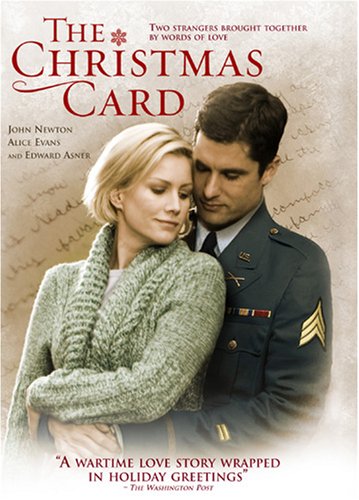Several years ago I worked as a piano accompanist for a high school choral music program. Between rehearsing with the whole choir, pounding out individual vocal parts, and practicing on my own, I’d play any given song approximately 47.38 times from first run to concert performance. This overexposure endeared some songs to me and caused me to loathe others—sorry, “Seasons of Love,” it’s loathing for you.
One song I came to appreciate through this process was “I Heard the Bells on Christmas Day.” I love this holiday hymn because its lyrics, written by the poet, Henry Wadsworth Longfellow, have a rich historical background and speak to me personally as well, and its music, composed by Jean Baptiste Calkin, beautifully adds emotion to tell a more vivid story.
Read the lyrics of this song, keeping in mind that the tune places emphasis on the second line of each verse and finishes with a sense of resolution by the fourth. (If you need a refresher on the music, listen to this rendition by Echosmith.)
“I Heard the Bells on Christmas Day”
I heard the bells on Christmas day
Their old familiar carols play,
And wild and sweet the words repeat,
Of peace on earth, goodwill to men
And thought how, as the day had come,
The belfries of all Christendom
Had rolled along th’unbroken song
Of peace on earth, goodwill to men
And in despair I bowed my head:
“There is no peace on earth,” I said,
“For hate is strong, and mocks the song
Of peace on earth, goodwill to men”
Then pealed the bells more loud and deep:
“God is not dead, nor doth He sleep;
The wrong shall fail, the right prevail,
With peace on earth, goodwill to men”
Till ringing, singing on its way,
The world revolved from night to day,
A voice, a chime, a chant sublime,
Of peace on earth, goodwill to men!
Henry Wadsworth Longfellow penned these words in the midst of great heartache in his life. Several years earlier, his wife tragically died in a fire, and not long after that, the Civil War began. Longfellow’s soldier son, Charley, was shot in battle and nearly paralyzed, and it was while nursing him back to health that Henry wrote these lyrics.*
The Christmas bells that so encouraged Longfellow during such a dark season were undoubtedly church bells, and I imagine that hearing them was so comforting to him because they reminded him of the teaching he’d received within the church’s walls, foundational truths that transcended present circumstances.
The litany, “of peace on earth, goodwill to men,” comes from the angels’ pronouncement to the shepherds at the birth of Christ; they were told to fear not and to receive the good news for all people that a Savior was born (Luke 2:8-11). “And suddenly there was with the angel a multitude of the heavenly host praising God, and saying, ‘Glory to God in the highest, and on earth peace, good will toward men.’” (Luke 2:13-14) The birth of a Savior meant peace on earth and good will for everyone, and that has remained the greatest reason for celebrating the Christmas season from Bible times to the Civil War to the present.
Longfellow certainly had reason to bow his head in despair, lose faith in the possibility of peace on earth, and be overwhelmed by the hate he observed in the world. Most of us have found ourselves in a similar spot at one time or another, whether due to the turmoil we’ve seen on the news or the turmoil we’ve experienced personally through broken relationships, loss, and unfulfilled dreams. As implied in the song, it can be tempting to think that God is dead. Or for those like myself who remain convinced that God is alive, it can be even more tempting to believe that He is asleep at the wheel, snoozing on the job. I’m comforted by the same words in which Longfellow found solace:
“I lift up my eyes to the hills—where does my help come from? My help comes from the Lord, the Maker of heaven and earth. He will not let your foot slip—He who watches over you will not slumber; indeed, He who watches over Israel will neither slumber nor sleep. The Lord watches over you—the Lord is your shade at your right hand; the sun will not harm you by day, nor the moon by night. The Lord will keep you from all harm—He will watch over your life; the Lord will watch over your coming and going both now and forevermore.” (Psalm 121, emphasis mine)
This Christmas season, let the music and traditions remind you of some transcendent truth you may have forgotten about—such as the truth that whether in this life or the next, the wrong will fail and the right prevail (2 Corinthians 4:16-18). Even if you’re skeptical about the Bible, read a few chapters and see if they have something to say to your modern life; let its words bring you comfort that’s outside of yourself—of peace on earth, goodwill to men.
In what truth are you finding comfort this Christmas season? Tell me in the comments.
*Biographical info taken from Come Let Us Adore Him by Robert J. Morgan.
You may also enjoy:




































